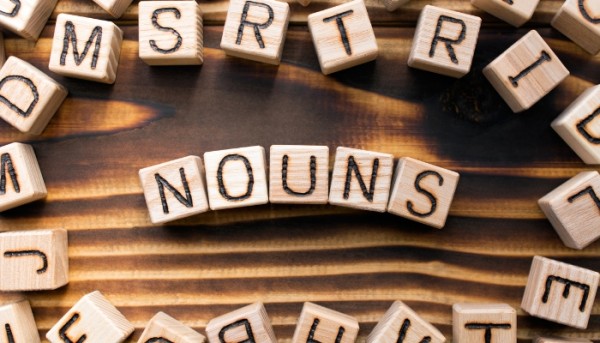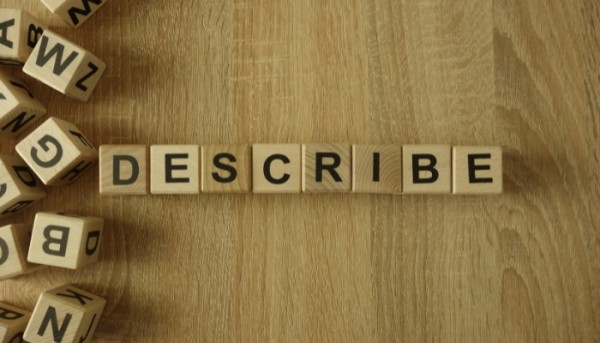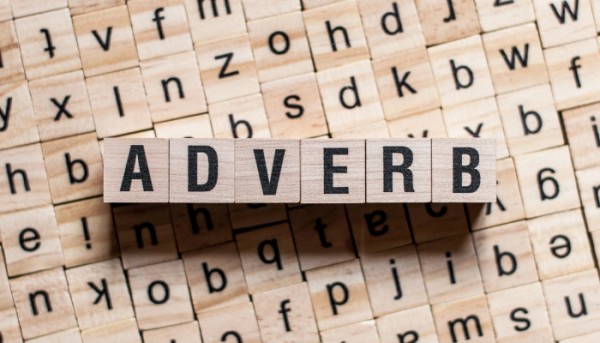Welcome to the world of English adjectives! Adjectives play a vital role in the English language, not only helping you to improve your English speaking skills, but also your writing! Whether you’re a beginner or looking to brush up on your grammar skills, this blog will guide you through the basics of adjectives, different types of adjectives, the order in which they should be used, and much more. By the end of this blog, you’ll have a solid understanding of the power of adjectives and how to use them effectively in your everyday communication, expanding your vocabulary and improving your language skills.
Understanding the Basics of Adjectives
Adjectives are words that modify or describe nouns and pronouns, giving them characteristics or attributes. They allow us to provide specific details about people, places, things, or ideas. In the English language, adjectives form an essential part of general adjectives. Whether it’s a simple adjective like “beautiful” or a complex one like “exhilarating,” these words help paint a clearer picture of the noun or pronoun they are attached to. Understanding the basics of English adjectives is the first step in mastering the language.
Definition and Role of General Adjectives in English
In grammar, adjectives are words used to modify or describe nouns. They provide additional information about the noun, helping to specify which item among many is being referenced. Adjectives enrich the English language by making it more expressive, allowing us to add depth and context to our sentences. Without adjectives, language would be limited in its ability to convey meaning and create vivid imagery. From the simplest adjectives, such as “big” or “blue,” to the more intricate ones, English adjectives play a crucial role in effective communication.
How Adjectives Modify Nouns
Adjectives modify nouns by adding characteristics, qualities, or attributes to them. They give more details about the noun, helping us distinguish one noun from another. For example, in the sentence “The beautiful flower bloomed in the garden,” the adjective “beautiful” adds a specific quality to the noun “flower.” By modifying nouns with adjectives, we clarify meanings and create a richer, more descriptive language. Using adjectives appropriately enhances the sentence, providing the reader or listener with a clearer understanding of the noun being described. Adjectives can also act as predicate adjectives, modifying the subject of a sentence through a linking verb. Understanding how adjectives modify nouns and their various functions is crucial for improving your English writing skills.

Proper use of nouns can help you become fluent in English!
Exploring Different Types of Adjectives
Now that we have a grasp of the basics, let’s delve into the different types of adjectives. There are various types, each serving a different purpose in English grammar. From descriptive adjectives that paint a vivid picture, to possessive adjectives that demonstrate ownership, and even comparative and superlative adjectives that highlight differences in degree, each type of adjective adds a unique flavor to language. By exploring the different types of adjectives, we gain a deeper understanding of the nuances and helps to improve your English language skills.
Descriptive Adjectives
Descriptive adjectives provide specific details about the noun they modify, which helps create a vivid image in the reader’s mind. These adjectives offer qualities, colors, sizes, and shapes to nouns, allowing us to be more precise in our descriptions. For example, consider the sentence “The majestic mountains stood tall in the distance.” The adjective “majestic” adds a specific quality to the noun “mountains,” giving the reader a clear image of their grandeur. Descriptive adjectives are the foundation of expressive writing, bringing our words to life.

Descriptive adjectives can make your English more interesting and advanced.
Possessive Adjectives
Possessive adjectives indicate ownership or relationship, showing that someone possesses something. These English adjectives clarify who something belongs to and express the connection between individuals and objects. For example, in the sentence “I lost my pen,” the possessive adjective “my” demonstrates that the pen belongs to the speaker. Possessive adjectives, like other adjectives, come before the noun they modify and agree in number and gender. Understanding possessive adjectives is crucial for conveying ownership in sentences and building stronger relationships between words.
Comparative and Superlative Adjectives
When describing items, writing efficiently includes comparing them using comparative adjectives, and highlighting distinctions. Superlative adjectives reflect the highest level of quality or degree within that comparison. Mastering these aspects enhances one’s language proficiency significantly, aiding in effective communication and writing skills. Understanding the nuanced differences between comparative and superlative adjectives allows individuals to express themselves more precisely, enriching their command of the English language with depth and clarity. Additionally, it is important to note the use of the definite article “the” before superlative adjectives, indicating the highest level of a specific quality.

Superlative adjectives show that the noun is the highest ‘quality’ in that area – such as “the best restaurant in London”.
Delving into Compound Adjectives
Exploring the realm of compound adjectives reveals their power in concise descriptions. By merging two or more words, these adjectives form a cohesive unit to vividly portray nouns. Whether hyphenated or fused together, they efficiently capture complex qualities in a single phrase, enhancing clarity and brevity. Through this linguistic device, writers can bypass verbosity while crafting rich and precise narratives, exemplifying the elegance of well-structured sentences. Utilizing compound adjectives eloquently showcases mastery of the English language and enriches the expressive palette within the text.
Definition and Examples of Compound Adjectives
Compound adjectives, also known as coordinate adjectives, are formed by combining multiple words to describe a noun. They create a unified and concise meaning, simplifying intricate descriptions and enhancing clarity in writing. English literature offers abundant instances of these adjectives, showcasing their effectiveness in conveying information efficiently. From “well-known author” to “three-year-old child,” compound adjectives play a vital role in enriching the language through creative word combinations.

Fun Challenge: try to describe yourself using a compound adjective!
Unraveling the Order of English Adjectives
The order of English adjectives in the language follows a specific sequence based on their type. Generally, the order starts with determiners, followed by observations/opinions, size, age, shape, color, origin, material, and finally, purpose. This order, known as the order of attributive adjectives, is crucial to maintain clarity and coherence in writing. Understanding and applying the sequence correctly can significantly improve the quality of your writing, making it more engaging and grammatically correct. Practice exercises on ordering adjectives can enhance your skills in using them effectively within sentences.
Rules for Ordering Adjectives in Sentences
When constructing a sentence in English, the order of adjectives plays a crucial role. Adjectives are arranged in a specific sequence, typically starting with opinion and ending with purpose. This order, which includes size, age, shape, color, origin, material, and more, contributes to precise and coherent descriptions. Mastering this structure improves sentence quality and ensures effective communication. Embracing the correct placement of adjectives enhances clarity and conciseness in writing, resulting in well-crafted sentences that convey intended meanings effortlessly.
Practical Examples of Adjective Order
Arranging English adjectives correctly is key. Consider the phrase “A beautiful small Italian silk scarf.” It follows the order from opinion to material, illustrating adjective placement. Practice with examples enhances grammar skills and application accuracy. Real-life instances aid in proper rule utilization. Observing everyday language improves language proficiency, emphasizing the importance of adjective order in effective communication. Incorporating these principles into writing ensures clarity and coherence.

Accurately ordering your English adjectives is a crucial step to achieving fluency!
Distinguishing Adjectives from Adverbs
Adjectives provide details about nouns, unlike adverbs that modify verbs, adjectives, or other adverbs. Recognizing this difference is crucial for clear communication. While English adjectives answer “What kind?” or “Which one?” questions, adverbs address “How?” or “When?” Understanding them improves sentence structure and communication effectiveness. Enhancing clarity through the proper identification of distributive adjectives and adverbs is vital in improving written English skills.
Key Differences between Adjectives and Adverbs
Understanding the distinction between English adjectives and adverbs is crucial in language mastery. Adjectives focus on describing nouns, whereas adverbs delve into detailing verbs. It’s essential to differentiate that adjectives characterize qualities while adverbs express manner, time, or degree. This awareness aids in clear and effective communication. English adjectives modify nouns directly, while adverbs can modify verbs, adjectives, or other adverbs, enhancing language fluency and precision. Mastery of when to utilize adjectives versus adverbs significantly refines one’s language skills.

There are key differences between Adverbs and Adjectives.
When Nouns and Adjectives Switch Roles
Instances where nouns and adjectives interchange roles highlight the flexibility of the English language. Recognizing when nouns act as adjectives enriches writing creativity and language usage. English adjectives, in certain cases, can represent a group or category, demonstrating the versatile nature of language. Understanding how nouns and adjectives can swap roles adds depth to good writing, and using a thesaurus can help writers find the perfect words to communicate effectively.
Instances where Nouns act as Adjectives and vice versa
Broadening language comprehension, consider how “coffee table” describes a type of table, while “watercolor painting” specifies artwork type. Recognizing nouns as adjectives provides insight into nuanced word usage, deepening linguistic expression. Interchanging roles of nouns and adjectives enriches language dynamics.
English Adjectives: What are Phrases and Clauses?
A phrase is a group of words that function as a single unit in a sentence, while a clause is a group of words that includes a subject and a verb and can function as a complete sentence on its own. Adjective phrases and clauses typically follow the noun or pronoun they modify, providing additional information or describing characteristics in more detail.
A noun is a word that represents a person, place, thing, or idea. It is the main subject or object of a sentence, and it can also be used to modify other nouns as an adjective.
Understanding Adjective Phrases with Examples
Exploring how phrases like “The book on the table” enhance descriptions by modifying nouns. Adjective phrases enrich sentences with vivid details, as seen in examples like “A house with a red door.” Mastering their construction elevates sentence structure, offering depth and variety. Enhancing your writing skills through understanding and applying such phrases can significantly impact the quality of your compositions.

Phrases can be as little as two words!
How often should you use adjectives in your writing?
Balancing the usage of English adjectives is vital in writing. Skillfully incorporating them enriches your narrative by enhancing description and tone. Employ varied and precise adjectives strategically to create engaging storytelling without overwhelming the text. Maintain a cohesive narrative with judicious adjective use.
Master Adjective Words in English Grammar!
To become proficient in English, it is essential to master adjectives. Adjectives add depth and detail to our language, allowing us to describe people, places, and things with precision. From descriptive adjectives that paint vivid pictures to possessive adjectives that establish ownership, each type plays a unique role in enriching our communication. It’s also important to understand the order of adjectives in a sentence and the difference between adjectives and adverbs.
By practicing and incorporating adjectives into your writing and speaking, you can elevate your language skills and effectively express yourself. So, embrace the power of adjectives and embark on a journey to enhance your English proficiency. Remember, practice makes perfect!





